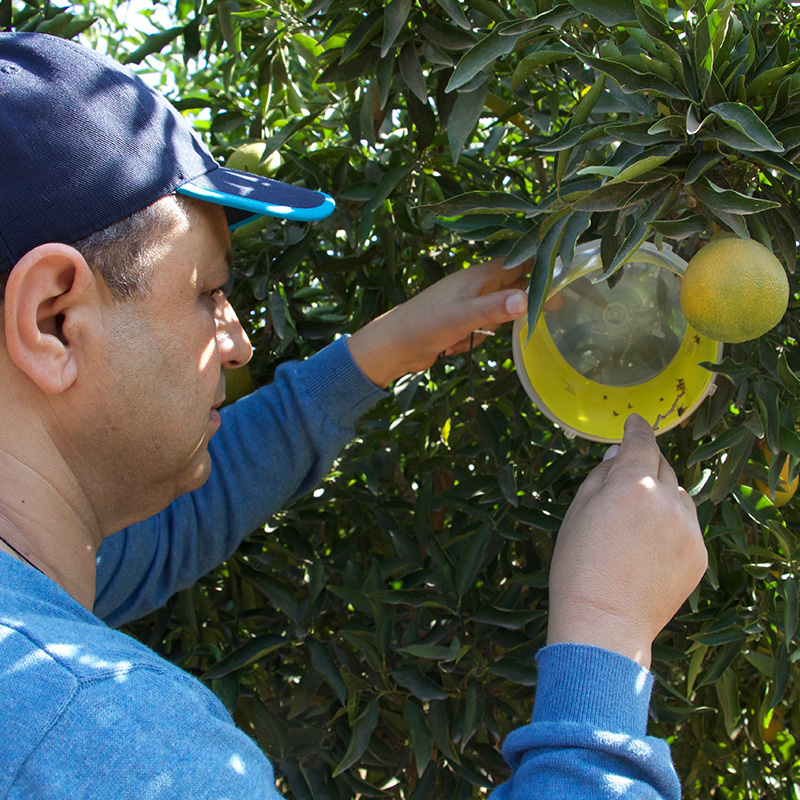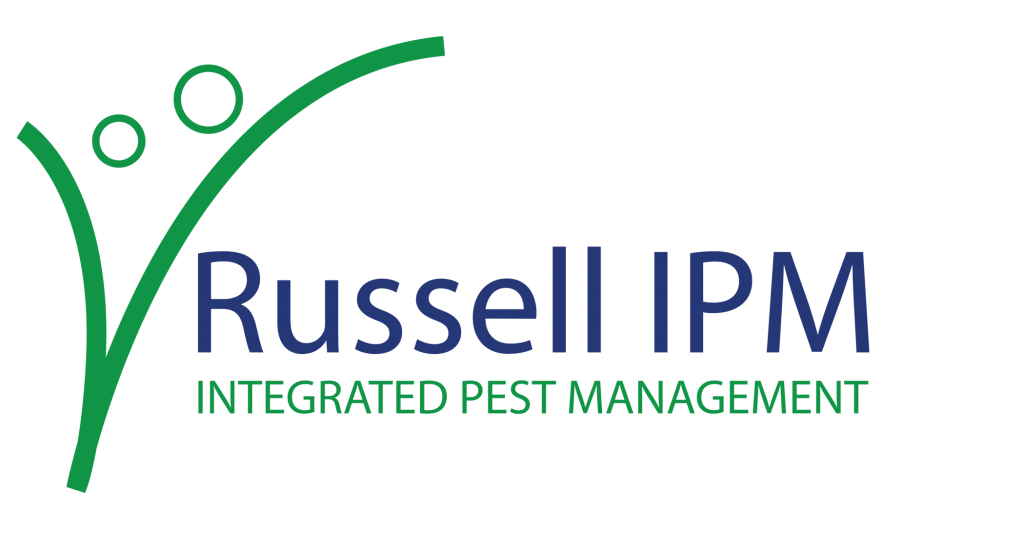In order to maintain our position as a leading manufacturer of biological control products, Russell IPM know that research and development is key to producing ground breaking technology that protects the food supply chain. By investing in research today, we can help protect the worlds’ food tomorrow, taking the critical steps from lab to field.
Russell IPM has been a commercial partner in the DEFRA Link project, the Innovate UK Technology Strategy Board (TSB) projects, Knowledge Transfer Partnerships (KTP) and FP7 (EU) projects concerning the development of insect attractant release control technologies. These university-business links ensure our objectives are translated from research and company ambitions into real solutions for the agricultural sector.
Year on year our research and development generates new technology that fulfils our customer needs and enables us to develop the most promising products. Russell IPM has been the commercial partner in DEFRA (UK), KTP (UK) and EU funded projects concerning the development of multi-species attractant and pheromone release control technology.

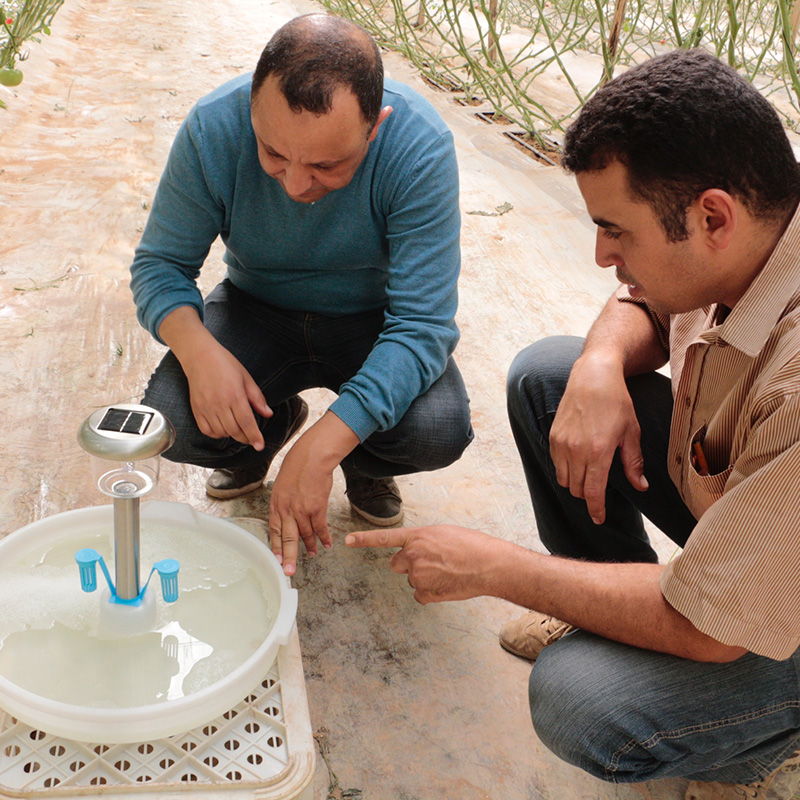
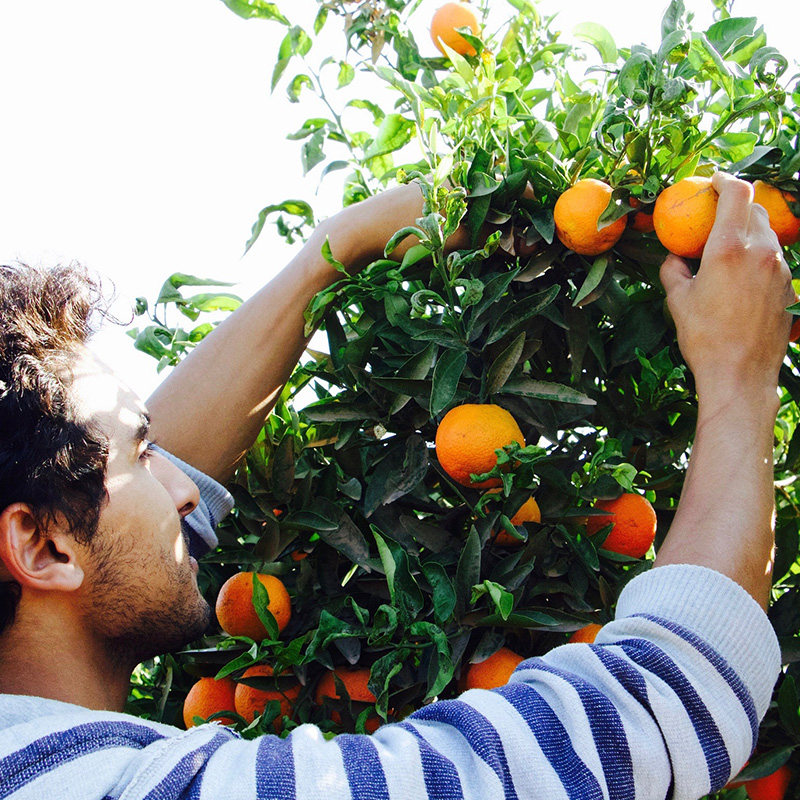
Smart Technologies
The University of Buckingham is working in collaboration with Russell IPM to develop communication technologies and advanced SMART traps for the monitoring of agricultural pests. This KTP funded project will develop technology that aims to satisfy the new EU Sustainable Use Directive. The technology will provide farmers with digitised and accurate pest population levels to assist in decision-making in a timely and precise manner.
The precision monitoring tool will utilise insect pheromones to lure target pests into the device. Once trapped, insects will be photographed and automatically counted. Additionally, the project aims to develop software that will detect the insect species based on unique anatomical identifiers. The data collected will then be communicated over an IoT network to a host server where it will inform farmers of infestation risks. The project is ongoing and Russell IPM are extremely pleased to have the knowledge and experience of their partners at the University of Buckingham.

Innovate UK
Russell IPM is leading projects funded by Innovate UK in collaboration with prominent research institutes. Each collaboration takes place at different stages in the research and development process for the purpose of developing new technology for a smarter and more environmentally sensitive way of managing pests in key agricultural sector.

Keele
Russell IPM and Keele University have being working together since 2004 and their partnership is currently centred on two economically important insect pests. The joint business-academia venture has been highly productive in the development of pheromone based mass-trapping systems due to the expertise of Dr Gordon Hamilton and Dr William Kirk from Keele University and Dr Nayem Hassan from Russell IPM Ltd.
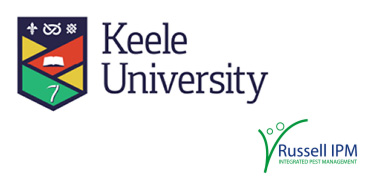
Knowledge Transfer Partnership
Russell IPM collaborate with a number of universities within the Knowledge Transfer Partnership for the development of new technologies to support the farming sector in the UK and Europe. Currently the company is working with prominent entomologist Dr Clare Sampson of Keele University, to design and trial improved traps for control of the Western Flower Thrips and Whiteflies in protected crops.
For more information please look at our published papers below:
Reduced translucency and the addition of black patterns increase the catch of the greenhouse whitefly, Trialeurodes vaporariorum, on yellow sticky traps.
Can Mass Trapping Reduce Thrips Damage and Is It Economically Viable? Management of the Western Flower Thrips in Strawberry.
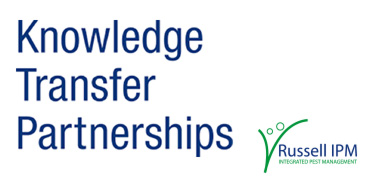
Pepper Weevil Traps
Russell IPM is leading a project to develop an improved pepper weevil lure and trap, with the support of funding from the Welsh Government Smart Cymru project, in collaboration with Prof David Hall of Natural Resources Institute of the University of Greenwich (NRI) and Dr Michelle Fountain, from East Malling Research (NIAB-EMR). Work is in progress to optimise the visual and pheromone attraction of the traps.

KTN
Russell IPM have developed innovative pest control technologies that reduce the need for conventional pesticides in soft fruit production in developing countries with support from KTN and funding from Innovate UK and DFID.

Smart Bedbug Monitor
With the help of a European regional development fund, Russell IPM is developing a SmartTrap system for remote monitoring of bedbugs in houses and hotels. The SmartTrap will identify the presence of bedbugs in real time and transmit the data to a variety of mobile platforms as an aid to scheduling management treatments for the bedbugs.

Control of Western Flower Thrips in the UK
As part of the Defra Horticulture LINK project to identify the most successful control methods of Western Flower Thrips in commercial strawberry production, Russell IPM demonstrated that application of the Optiroll sticky roller traps resulted in reduced damage and thrips numbers as well as a significant increase in marketable fruits.
The work was undertaken in a collaborative Defra-funded research project between growers, industry and research institutes, to develop effective strategies to manage this economically important pest. Russell IPM’s Optiroll sticky roller traps were found to offer effective protection when used as part of an integrated control programme with predatory mites.
Furthermore, the addition of a Western Flower Thrips pheromone to the sticky traps offered even better protection, resulting in 70% less fruit damage and a significant reduction in thrips numbers. We would like to thank Defra, Keele University and East Malling Research for their input and guidance in this study.
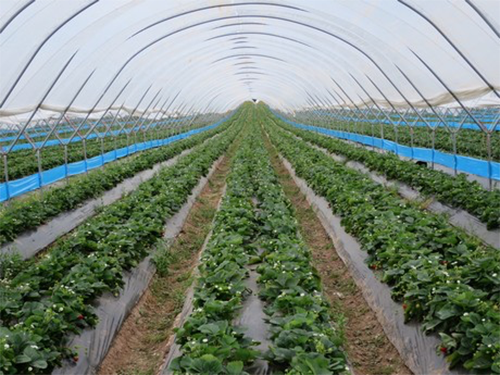
Biorational Fruit Fly Management in Africa and Asia
Russell IPM led an Innovate UK Technology Strategy Board (TSB) project along with 10 partners in Tanzania, Kenya, Nepal and Bangladesh to demonstrate the efficacy of Ceranock, a pheromone based attract and kill system for fruit fly.
Funding from the Innovate UK project board has helped Russell IPM to promote the technology in developing countries, working with local governments to reach, raise awareness and train local farmers.
Ceranock’s innovative attract and kill system results in 0% residues on fresh produce whilst effectively controlling fruit fly populations, helping impoverished growers avoid the need to blanket spray their crop with chemical pesticide and assist them in reaching lucrative export markets. Therefore, this collaboration has been instrumental in bringing cost-effective, environmentally-sensitive and innovative solutions for fruit fly to the developing world.

